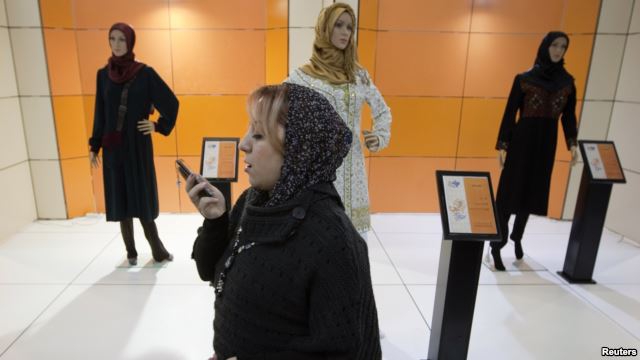 A leading conservative cleric in Iran is worried about the "negative features" of high-speed mobile Internet and 3G services.[/caption]
A leading conservative cleric in Iran is worried about the "negative features" of high-speed mobile Internet and 3G services.[/caption]Asenior Iranian hard-line cleric says high-speed mobile Internet and third generation mobile services are "un-Islamic" and violate "human and moral norms".
Grand Ayatollah Naser Makarem Shirazi said Iranian authorities should introduce measures that would prevent access to the "negative features" of high-speed mobile Internet and 3G services before making them widely available.
Makarem Shirazi, a Shi'ite�source of emulation, said expanding Internet services hastily can result in the spread of corruption including the access of young people to anti-Islamic movies and other content.
Makarem Shirazi made the ruling in response to an enquiry by a group of online activists.
In a�statement posted on his personal website, Makarem Shirazi wrote that authorities should consult with the Supreme Council of Cyberspace (SCC), which formulates and oversees Iran's Internet policies including its tough online censorship.
"Authorities should not merely think about the financial earnings of this program, and consider it as a type of religious intellectualism and academic freedom," Makarem Shirazi wrote.
The ayatollah added that Iranian judiciary officials should also not remain "indifferent" regarding this "vital issue."
The online activists had written in their enquiry to Ayatollah Makarem Shirazi that Iran's Ministry of Communication has announced it will soon give more mobile providers licenses for high-speed Internet services.
One company, mobile operator Rightel, had exclusive rights to provide 3G services in Iran, but in recent weeks two other mobile providers have also obtained 3G licenses. Yet 3G subscribers still account for only a tiny share of the overall mobile market in Iran.
The activist group added that Iran does not have the necessary �structure to prevent the "harm" that could result from such services, including "access to immoral movies and photos," "the weakening of family structures," and "spying and the sale of the country's confidential information."
The exchange highlights the pressure President Hassan Rohani faces from hard-liners in implementing his promises to lessen online censorship and give Iranians greater access to information.
Rohani is the chairman of the SCC, the Internet body that Makarem Shirazi advised the government to consult. But the Iranian president is not the sole decision-maker in the SCC, which is dominated by conservative and hard-line members including the head of Iran's judiciary, the commander of the Islamic Revolutionary Guard Corp, and the head of state broadcasting.
The oversight body was established in 2012 following a decree by Supreme Leader Ali Khamenei, who said Iranians should be protected from the "damage" caused by the spread of information and communication technologies.
Earlier this year,�Rohani said�that the Internet should not be seen as something that should be feared.
"We ought to see [the Internet] as an opportunity. We must recognize our citizens' right to connect to the World Wide Web," Rohani was quoted as saying by the official IRNA news agency on May 20.
The enquiry to Makarem Shirazi and his ruling, however, demonstrate that, for hard-liners, the Internet remains a cause of concern which they see as a threat to morality and national security, despite Iran's strict censorship, which leads to the filtering of thousands of websites and social media.
It's not the first time Makarem Shirazi has weighed in against 3G. Last year he spoke against video calls, saying they had more downsides than benefits.
His latest ruling has�sparked criticism�online.
"We're already facing filtering. What else do you want? What kind of nonsensical question is this?" wrote an Internet user in the comments section of one of the websites that posted Makarem Shirazi's ruling.
"The Internet is as necessary as water and food," wrote another user, while someone else maintained that the Internet should be seen as a tool for progress.
"In our backward country we see only the negative sides. According to this [argument] grapes should be considered haram because they can be used to produce wine!!!" the user said.
The ayatollah's ruling was also criticized on social media by some Iranians who said the cleric should not issue statements about issues he's not familiar with.
"You shouldn't speak about things you know nothing about," wrote a young man on Facebook.
By Radio Free Europe/Radio Liberty
The Iran Project is not responsible for the content of quoted articles.












